
Nigeria is a country in West Africa that is home to over 200 million people. It is a multi-ethnic and multi-religious nation, and its politics are complex and often contentious. Nigeria has a long history of political instability, with military coups, ethnic and religious violence, and corruption all playing a role in the country's political landscape.
The current political system in Nigeria is a federal presidential republic, with a president as the head of state and a prime minister as the head of government. The president is elected by popular vote and serves a four-year term. The prime minister is appointed by the president and is responsible for the day-to-day running of the government.
Nigeria is divided into 36 states, each of which has its own governor and legislature. The federal government is responsible for the country's foreign policy, defense, and economic policy. It also has the power to pass laws that apply to the entire country.

The country has a vibrant civil society, with a wide range of political parties and organizations. The two main political parties are the People's Democratic Party (PDP) and the All Progressives Congress (APC). The PDP has been in power since 1999, while the APC has been in opposition since 2015.
Nigeria has a long history of political corruption, with many politicians accused of misusing public funds and engaging in other forms of corruption. This has led to a lack of trust in the government and a lack of faith in the political process.
Nigeria's politics are complex and often contentious, but the country is making progress towards a more stable and prosperous future.
Exchange Rate of The Nigeria Naira

The exchange rate of the Nigerian Naira (NGN) to the US Dollar (USD) has been a topic of much discussion over the past few decades. The Naira has experienced a significant amount of volatility over the years, with the exchange rate fluctuating between NGN/USD 1:1 in the early 1980s to NGN/USD 380:1 in 2020 to NGN/USD 743:1 in 2023.

The exchange rate of the Naira to the Dollar has been heavily influenced by a number of factors, including the country’s economic policies, political instability, and the global economic environment. In the early 1980s, the Naira was pegged to the US Dollar at a rate of 1:1, but this was later abandoned in the late 1980s due to the country’s economic crisis. Since then, the exchange rate has been determined by the market forces of supply and demand.
The exchange rate of the Naira to the Dollar has been on a downward trend since the early 2000s, with the Naira depreciating against the Dollar. This has been due to a number of factors, including the country’s economic policies, political instability, and the global economic environment. In addition, the Naira has been affected by the devaluation of other African currencies, such as the CFA Franc and the South African Rand.
The current exchange rate of the Naira to the Dollar is NGN/USD 743:1. This is significantly lower than the rate of NGN/USD 1:1 in the early 1980s. The future exchange rate of the Naira to the Dollar will depend on a number of factors, including the country’s economic policies, political stability, and the global economic environment.
If the wrong candidate is elected to power, the exchange rate of the Naira to the Dollar could be further affected. This could lead to a further depreciation of the Naira against the Dollar, resulting in a weaker exchange rate. It is therefore important for the Nigerian people to choose the right candidate in order to ensure a stable exchange rate.
Nigerian Governmental Educational Failure.

Nigeria has long been plagued by governmental failure in the education sector, leading to a number of strikes by the Academic Staff Union of Universities (ASUU). This has had a detrimental effect on the quality of education in the country, with students suffering from a lack of resources and inadequate teaching.
The Nigerian government has failed to provide adequate funding for the education sector, leading to a lack of resources and infrastructure. This has resulted in overcrowded classrooms, outdated textbooks, and a lack of qualified teachers. Furthermore, the government has failed to implement policies that would ensure the quality of education in the country that has also led to a decrease in the quality of education, with students not receiving the necessary skills and knowledge to succeed in their studies.

ASUU was forced to take action in order to improve the quality of education in Nigeria. The union has organized a number of strikes in order to pressure the government into providing more funding for the education sector. These strikes have been successful in raising awareness of the issue, but the government has yet to take any meaningful action.
The lack of governmental action has had a detrimental effect on the quality of education in Nigeria. Students are not receiving the necessary resources and support to succeed in their studies, leading to a decrease in the quality of graduates. This has had a negative impact on the economy, as graduates are not able to find employment due to their lack of skills and knowledge.
Nigerian Governments and Promises.

Nigeria is a country with immense potential, yet it has been plagued by governmental failure for decades. The country has been plagued by corruption, mismanagement, and a lack of accountability. This has led to a lack of economic growth, poverty, basic services for its citizens.
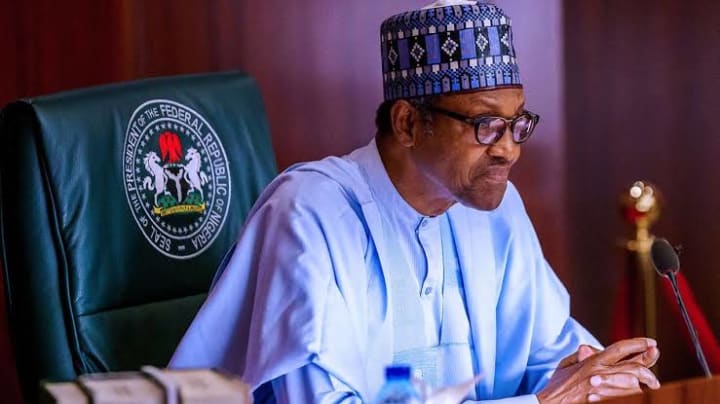
The current government has been in power since 2015, and has failed to deliver on its promises of economic growth and improved living standards. The country has seen a rise in unemployment, poverty, and inequality. This has been compounded by the COVID-19 pandemic, which has had a devastating impact on the country’s economy.
The upcoming 2023 election presents an opportunity for the Nigerian people to make a change. The election will be a chance for the people to choose a leader who will be committed to tackling the country’s problems and delivering on the promises of economic growth and improved living standards.
The Nigerian people must be vigilant in ensuring that the election is free and fair. They must also ensure that the candidates are held accountable for their promises and that the government is held to account for its actions.

The 2023 election presents an opportunity for the Nigerian people to make a change and to create a better future for themselves and their children. With the right leadership, Nigeria can become a prosperous and stable nation.
Nigeria, Corruption and Poverty
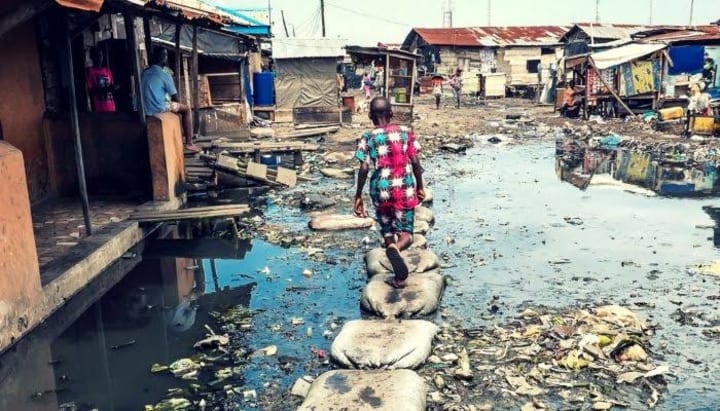
Nigeria is a country in West Africa that has been plagued by corruption and poverty for decades. Corruption has been a major issue in Nigeria since the country gained independence in 1960. It has been estimated that up to $400 billion has been stolen from the Nigerian government since then. This has had a devastating effect on the country’s economy and has led to widespread poverty.

Corruption in Nigeria is rampant and takes many forms. It includes bribery, embezzlement, and misappropriation of public funds. It also includes the misuse of public resources for private gain. This has resulted in a lack of investment in infrastructure, education, and health care, which has further exacerbated poverty in the country.
The Nigerian government has taken steps to combat corruption, but these efforts have been largely unsuccessful. This is due to a lack of political will and a lack of accountability. The government has also failed to implement effective anti-corruption laws and regulations.
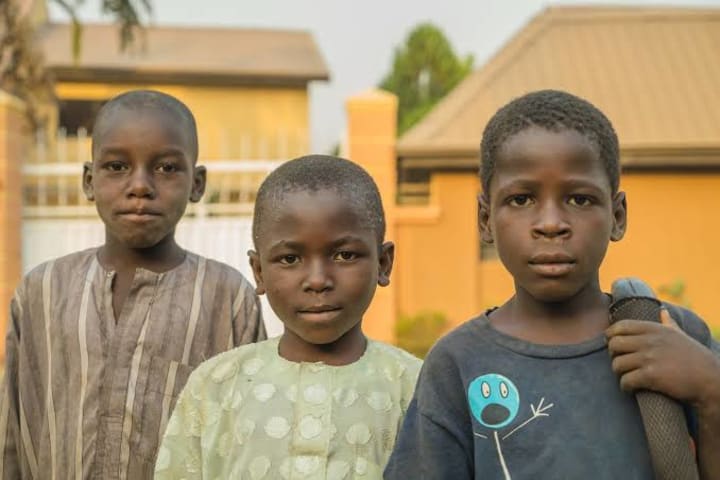
The effects of corruption and poverty in Nigeria are far-reaching. It has led to a lack of economic growth, a decrease in the standard of living, and an increase in crime and violence, lack of access to basic services such as health care and education.
Cronyism and Nepotism

Cronyism and nepotism are two of the most pervasive issues in the Nigerian government.
Cronyism is the practice of awarding favors, jobs, and other benefits to friends and family members, while nepotism is the practice of favoring relatives in the awarding of jobs and other benefits. Both of these practices are illegal in Nigeria, yet they continue to be a major problem in the country.
The prevalence of cronyism and nepotism in the Nigerian government has been a major source of corruption and inefficiency. It has led to the misallocation of resources, the mismanagement of public funds, and the creation of an environment of favoritism and patronage. This has resulted in a lack of accountability and transparency in the government, as well as a lack of trust in the government by the public.
The Nigerian government has taken steps to address the issue of cronyism and nepotism. The government has implemented a number of anti-corruption measures, such as the establishment of the Economic and Financial Crimes Commission (EFCC) and the Independent Corrupt Practices and Other Related Offences Commission (ICPC). These organizations are tasked with investigating and prosecuting cases of corruption and other related offenses.
Despite these efforts, cronyism and nepotism remain a major problem in the Nigerian government.
Graft, Greed and Grease.
Graft, greed and grease money are all too common in the Nigerian government. This is a problem that has been plaguing the country for decades, and it is one that needs to be addressed if Nigeria is to move forward.
Graft
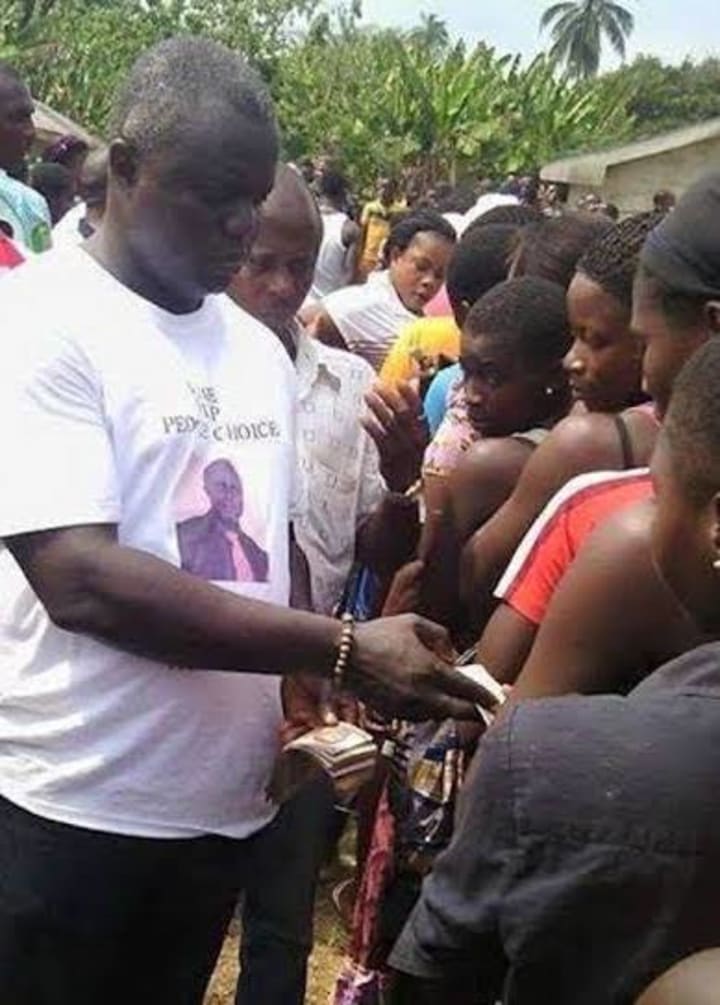
is the illegal use of public office for private gain. It is a form of corruption that involves the misuse of public funds or resources for personal gain. In Nigeria, this is often seen in the form of bribery, kickbacks, and other forms of corruption. This type of corruption has been a major problem in Nigeria for many years, and it has had a negative impact on the country’s economy and development.
Greed
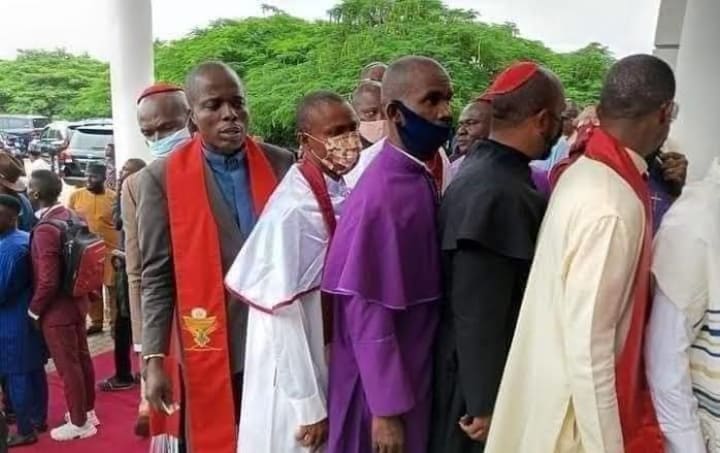
Greed is another problem that is rampant in the Nigerian government. Greed is the excessive desire for wealth or power. In Nigeria, this is often seen in the form of politicians and government officials who are willing to do anything to get what they want. This type of behavior has led to a lack of trust in the government and has made it difficult for the country to move forward.
If we’re in a system of government that gives room for public impersonation without fear of being sued, what then is the hope for Nigeria if this government/party/candidate wins the 2023 election.
Grease

money is another form of corruption that is common in Nigeria. Grease money is money that is given to government officials in exchange for favors or special treatment. This type of corruption has been a major problem in Nigeria for many years, and it has had a negative impact on the country’s economy.
Graft, greed and grease money are all too common in the Nigerian government, and they are a major obstacle to the country’s progress. It is essential that the government takes steps to address these issues if it is to move forward and create a better future for its citizens.
The Power of The Nigerian People.

The Nigerian people have long been subjected to the corrupt and oppressive rule of their leaders. Despite this, the Nigerian people have demonstrated remarkable resilience and strength in the face of adversity. This is evidenced by the numerous protests and demonstrations that have taken place in recent years, calling for an end to the corruption and mismanagement of the country’s resources.
We have also been vocal in our criticism of the government’s failure to address the country’s many problems. From the lack of basic infrastructure to the rampant poverty and inequality, the Nigerian people have made their voices heard and demanded change. This has been met with a strong response from the government, with many of the protesters being arrested and detained.

Despite this, the Nigerian people have continued to fight for their rights and for a better future for their country. They have organized marches, rallies, and other forms of protest to make their voices heard. They have also used social media to spread their message and to call for an end to the corruption and mismanagement of the country’s resources.

The Nigerian people have also taken action to hold their leaders accountable. They have organized petitions and campaigns to demand that the government take action to address the country’s problems. They have also used the courts to challenge the government’s actions and to seek justice for those who have been wronged.

The power of the Nigerian people in the face of corruption and oppression is undeniable. They have shown that they are willing to stand up for their rights and to fight for a better future for their country. It is this strength and resilience that will ultimately lead to a brighter future for Nigeria.

In conclusion, Nigeria 2023 is a critical year for the country's future. It is a time for the people of Nigeria to come together and work towards a brighter future. With the right leadership, Nigeria can become a prosperous and free nation. With the right policies and initiatives, Nigeria can become a beacon of hope and progress for the African continent. Nigeria 2023 is the road to freedom and a better future for all.
About the Creator
Okechukwu Divine
I write articles about human experience combined with fictional art.
“If writing is gold then call me king Midas”
Enjoyed the story? Support the Creator.
Subscribe for free to receive all their stories in your feed. You could also pledge your support or give them a one-off tip, letting them know you appreciate their work.






Comments
There are no comments for this story
Be the first to respond and start the conversation.